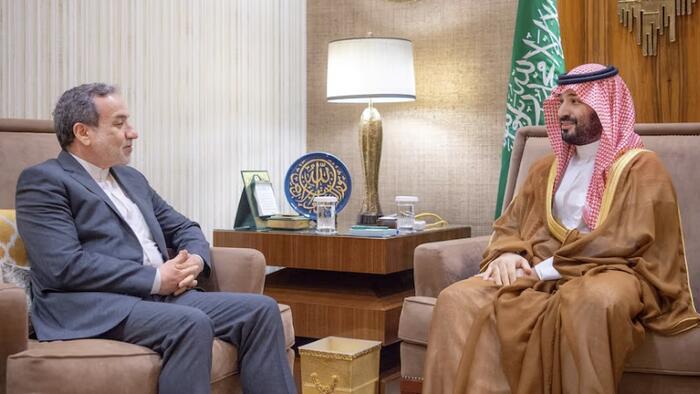The Gulf Cooperation Council (GCC) countries, particularly Saudi Arabia, the UAE, and Qatar, are increasingly worried about Israel’s intentions to launch a significant military counter-attack on Iran. This potential operation would likely target critical Iranian infrastructure, including military and energy facilities, and could involve the use of ballistic missiles and fighter jets. Responding to these threats, the Biden administration has been actively engaged in diplomatic efforts to dissuade Israel from such an escalation, focusing on the possible repercussions of attacks on Iran’s oil and gas sites. The Gulf states fear that an Israeli strike could provoke Iranian retaliation against their own oil facilities, a situation reminiscent of the last five years of escalating tensions and proxy conflicts in the region.
The recent dynamics between Gulf states and Iran have been characterized by a cautious approach following significant diplomatic engagements. Notably, Saudi Arabia has attempted to present itself as neutral in the ongoing tensions, hosting high-level meetings with Iranian officials, including a notable visit by Iranian Foreign Minister Abbas Araqchi. These diplomatic overtures are part of a broader strategy aimed at ensuring regional stability, especially in light of threats from Israel to take military action. Iran has reportedly expressed its expectations that Saudi Arabia should leverage its influence with Washington to prevent conflicts that could jeopardize the stability of Gulf oil production and exports.
Amid escalating threats from Israel, Iran has issued stark warnings to Saudi Arabia about the potential consequences of any collaboration with the Israeli military. Iranian officials have conveyed that should Israel receive assistance from Gulf states for an attack, Iran would not guarantee the safety of Saudi oil infrastructure. This precarious situation underscores the delicate balance that Saudi Arabia must maintain with both its regional rivals and its ally, the United States. The presence of U.S. military bases and troops in Saudi Arabia adds further complexity, as the U.S. has shown willingness to defend Israel against Iranian missile strikes.
The possibility of a wider conflict between Iran and Israel raises significant concerns about regional security. Should Israel engage in military operations against Iran, the U.S. may urge the Saudi-led coalition and other GCC members to open their airspace for American air operations. However, Iranian threats of retaliation complicate this scenario, as Tehran has explicitly stated that cooperation with Israel could be perceived as an act of war. This precarious state of affairs has prompted the Saudis to take steps to ensure they are not caught in the potential crossfire, including denying Israel the use of their airspace for any military engagement with Iran.
The historical context of the 2019 drone attacks on Saudi Aramco’s oil facilities remains a critical reference point for the GCC states. This incident disrupted over 5% of the global oil supply, thereby intensifying fears that any new hostilities could similarly threaten stability in energy markets. While OPEC may have enough spare capacity to compensate for potential losses from Iran’s oil production, strikes on Saudi or UAE infrastructure could have devastating implications. Consequently, the GCC’s concerted efforts to prevent Israeli strikes and communicate their stance to the U.S. reflect a strategic desire to maintain their oil production capabilities and regional security.
In summary, the GCC’s diplomatic landscape is increasingly shaped by the dual pressures of U.S.-Israel relations and the Iranian threat. As the Saudis work to affirm their stance of neutrality while navigating complex foreign relations, the risks posed by Israeli military intentions loom large. Both sides must tread carefully to avoid escalating tensions that could disrupt regional stability and threaten critical oil infrastructure. As these political and military dynamics continue to evolve, the GCC states are left to strategize their positions, balancing between their relationships with the U.S., Israel, and Iran to safeguard their interests in a fraught geopolitical environment.

